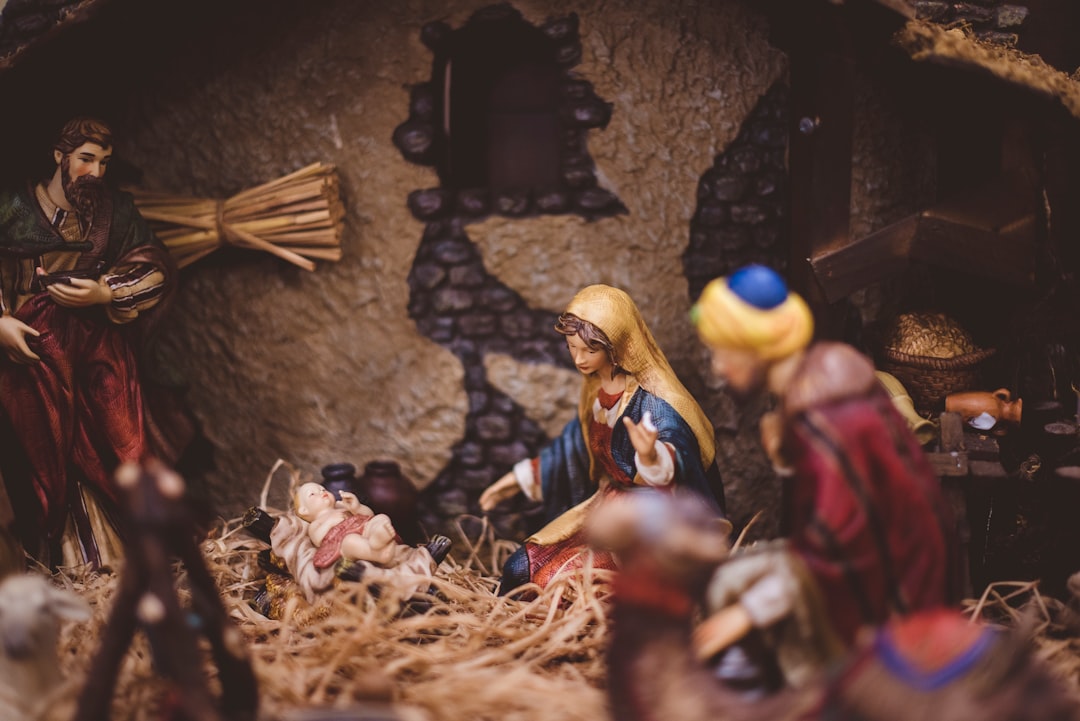The question of whether Jesus is truly the messiah has been debated for centuries throughout both the Jewish and Christian communities. To help unpack this complex topic, we will examine the Messianic prophecies from the Old Testament, how Jesus may have fulfilled them, and the perspective of each community. Read on to discover more about the controversy and evidence surrounding this age-old question.
What Does It Mean to Be the Messiah?

The term “Messiah” has its roots in the Hebrew word “Mashiach,” meaning “anointed one.” In Jewish tradition, the Messiah is seen as a powerful leader who will arrive at some point in the future to bring about a time of peace and prosperity for the Jewish people and the world as a whole. The belief in a future Messiah is a fundamental tenet of Judaism. Similarly, in Christianity, Jesus is believed to be the Messiah who was prophesied about in the Old Testament and who came to save humanity from sin and suffering.
The Messiah is seen as a savior figure, who is chosen by God to lead people towards salvation and redemption. According to Jewish scripture, the Messiah will be a descendent of King David, and he will bring about a time of universal peace, justice, and knowledge of God. In Christian theology, Jesus is believed to be the Son of God, who came to earth to fulfill Old Testament prophecies concerning the Messiah, through His crucifixion and resurrection. Christians believe that Jesus will return to earth one day and establish His kingdom on earth.

Both Judaism and Christianity hold that the Messiah will be a divinely appointed figure, chosen by God to lead His people to salvation. The Messiah will possess supernatural powers and will be able to perform miracles. He will also be a wise leader, who will bring about a time of peace and prosperity for all people.
In summary, the term “Messiah” refers to a powerful, divinely-appointed savior figure who is meant to bring about a time of peace, justice, redemption, and salvation. While the Jewish and Christian traditions understand the Messiah in slightly different ways, both religions hold that the Messiah is a fundamental part of their beliefs and offer different interpretations of their expectations and fulfillment of the prophecies.
The Messianic Prophecies in the Old Testament
The Messianic prophecies in the Old Testament are crucial in understanding the Jewish and Christian perspective of who the Messiah is. Throughout the Old Testament, there are numerous references and descriptions of a coming Messiah. These prophecies set the stage for the debate over whether or not Jesus is, in fact, the Messiah.
The idea of a Messiah is deeply embedded in Jewish culture and religion. The Old Testament clearly describes a long-awaited savior, who would redeem the nation of Israel and establish a new kingdom on earth. A prominent prophecy in Isaiah 9:6-7 describes the coming of a child who would be called “Wonderful Counselor, Mighty God, Everlasting Father, Prince of Peace.” This child is said to be a ruler who would establish his kingdom forever.
The Book of Daniel also contains prophecies describing the coming of a Messiah. Daniel 9:25-26 states, “Know and understand this: From the time the word goes out to restore and rebuild Jerusalem until the Anointed One, the ruler, comes, there will be seven ‘sevens,’ and sixty-two ‘sevens.’” This prophecy suggests that the Messiah will come after a specific period of time has passed since Jerusalem’s rebuilding.
One of the most well-known prophecies regarding the Messiah is found in the book of Micah. Micah 5:2 states, “But you, Bethlehem Ephrathah, though you are small among the clans of Judah, out of you will come for me one who will be ruler over Israel, whose origins are from of old, from ancient times.” This prophecy suggests that the Messiah will be born in Bethlehem, which adds to the intrigue surrounding Jesus’ birthplace.
These are just a few examples of prophesies that predicted the arrival of a Messiah. When considering Jesus’ life and mission, it’s clear that he fulfilled many of the Old Testament prophecies about the Messiah. For instance, Jesus was born in Bethlehem, descended from David’s lineage, and was crucified.
While these prophecies may seem like clear evidence that Jesus is, in fact, the Messiah, not everyone agrees. The Jewish perspective on Jesus is different from the Christian perspective. Jews view Jesus as a teacher and prophet, but not the true Messiah. They argue that the prophecies in the Old Testament describe a very different figure than the Jesus portrayed in the New Testament.
In conclusion, the Messianic prophecies in the Old Testament are an essential aspect of the debate over whether Jesus is truly the Messiah. These prophecies provide a context for understanding both the Jewish and Christian perspectives on the matter. Ultimately, it’s up to each individual to evaluate the evidence and come to their own conclusion about the identity of the Messiah.
How Jesus Fulfills the Messianic Prophecies

Throughout the centuries, many people have sought to answer the question: is Jesus truly the Messiah? One of the ways to approach this fascinating debate is by looking into how Jesus fulfills the Messianic prophecies in the Old Testament.
The Messianic prophecies refer to a series of predictions made by the Hebrew prophets in the Old Testament about the coming of a special Savior, who would be anointed by God to bring salvation and redemption to his people. These prophecies include a range of topics such as the Messiah’s lineage, character, mission, and destiny.
By examining how Jesus matches up to these specific prophecies, we can gain a deeper understanding of whether or not he is the long-awaited Messiah that Jews and Christians alike have been anticipating.
Here are some of the ways in which Jesus fulfills the Messianic prophecies:
-
Lineage: According to the Old Testament, the Messiah would come from the line of King David (Isaiah 9:7; Jeremiah 23:5), and Jesus indeed traces his lineage back to David through his earthly father, Joseph (Matthew 1:1-16; Luke 3:23-31).
-
Character: The Messiah would have unique spiritual qualities, such as being full of wisdom, righteousness, and compassion (Isaiah 11:2-5; Jeremiah 23:6), and Jesus demonstrated all of these traits throughout his teachings and actions.
-
Mission: The Messiah would be sent by God to preach the message of salvation and to bring redemption to his people (Isaiah 61:1-3), and Jesus constantly spoke about the kingdom of God and his role as the Son of Man who came to seek and save the lost (Luke 19:10).
-
Miracles: The Messiah would perform miraculous signs to authenticate his divine mission (Isaiah 35:5-6), and Jesus is famously remembered for his many works of healing, feeding, and resurrecting.
-
Resurrection: The Messiah’s ultimate destiny was to suffer, die, and rise from the dead to overcome sin and death (Isaiah 53:10-12; Psalm 16:10), and Jesus fulfilled this prophecy by rising from the dead on the third day (Matthew 28:5-7; Mark 16:6; Luke 24:6; John 20:1-9).
Of course, there are other ways in which Jesus fulfills the Messianic prophecies, and there are differing interpretations regarding the nature and extent of these fulfillments. Nevertheless, some argue that these fulfillments provide compelling evidence that Jesus is the Messiah, while others maintain that they do not prove his Messianic claim beyond reasonable doubt.
As we continue to unpack this debate, it is essential to remember that religious beliefs and convictions are profoundly personal and subjective, shaped by historical, cultural, and social factors. Thus, how one interprets the Messianic prophecies in the Old Testament and their fulfillment in Jesus depends on one’s worldview, faith tradition, and personal experiences of God’s presence and action in the world.
The Jewish Perspective on Jesus as the Messiah
« Discovering the Faith of Jairus: Synagogue Ruler and Witness to Christ’s Miraculous Healing Power
“Unraveling the Mystery of Cyrus in the Bible: His Role, Legacy and Impact on Jewish History”. »
The Jewish perspective on Jesus as the Messiah is a controversial issue that has been debated among scholars, theologians, and religious leaders for centuries. Judaism considers Jesus as a historical figure and a Jewish prophet who preached amongst the Jews during the Roman occupation of Palestine. However, the Jewish faith does not recognize Jesus as the Messiah because he did not fulfill the traditional expectations of what the Messiah would be and do.
According to Jewish tradition, the Messiah is a divine, earthly monarch appointed by God to bring peace, justice, and prosperity to the world. He would also ingather the Jewish exiles, rebuild the Temple in Jerusalem, and restore the divine sovereignty over Israel. Jewish scholars argue that these prophecies are yet to be fulfilled, and Jesus’ life does not fit the criteria for the Messiah outlined in Jewish scripture.
From a Jewish perspective, the concept of a divine son of God who died and was resurrected was considered blasphemous. While Christianity regards Jesus as the Son of God and the Redeemer of the world, Jewish theology asserts that there is only one God and that the Messiah would be a human being, not a divine entity. Thus, the belief in Jesus as the Messiah contradicts the Jewish concept of monotheism.
The relationship between Jews and Christians has been a long-standing topic of debate. Some modern Jewish theologians argue that Jews and Christians have a shared heritage and that both religions have something to teach one another. Other Jewish scholars reject the notion of Jesus as the Messiah and contend that his message was not intended for Jews but for a different audience.

In conclusion, the Jewish perspective on Jesus as the Messiah is that he did not fulfill the criteria outlined in Jewish scripture. While Jesus is considered a historical figure and a Jewish prophet, he did not meet the traditional Jewish expectations of what the Messiah would do and be. While the debate over Jesus as the Messiah continues, it is important to note that both traditions share a common history and a commitment to faith.
The Christian Perspective on Jesus as the Messiah
The Christian perspective on Jesus as the Messiah is a fundamental tenet of Christian faith that sets Christianity apart from other major religions. Christians believe that Jesus Christ is the prophesied Messiah promised by God in the Old Testament. This belief is based on the New Testament, which records the teachings, miracles, and resurrection of Jesus Christ.
Here are some of the key reasons Christians believe that Jesus is the Messiah:
-
Fulfillment of Messianic prophecies: Throughout the Old Testament, there are various prophecies that describe the characteristics of the coming Messiah. These include his lineage, birthplace, and mission. Christians believe that Jesus fulfilled these Messianic prophecies in his life, death, and resurrection.
-
Miracles and teachings: The Gospels in the New Testament describe Jesus performing miracles such as healing the sick, feeding the hungry, and raising the dead. Christians see these miracles as evidence of Jesus’ divine nature and his mission as the Messiah. Furthermore, Jesus’ teachings on love, forgiveness, and salvation continue to inspire and guide Christians today.
-
The resurrection: The cornerstone of Christian belief is the resurrection of Jesus from the dead on the third day after his crucifixion. According to the New Testament, Jesus’ resurrection is proof of his divine nature and his mission as the Savior of the world.
For Christians, the belief in Jesus as the Messiah is not just a matter of intellectual agreement or historical fact. It is a deeply personal and spiritual conviction that shapes their entire lives. This conviction is reflected in the Christian faith’s core teachings on salvation, redemption, and eternal life. Christians believe that by putting their faith in Jesus Christ, they can be saved from sin and death and have eternal life with God.

Despite the central place of Jesus Christ in Christian belief, there has been much debate and controversy over the centuries about the evidence for and against Jesus as the Messiah. Some skeptics argue that the Messianic prophecies in the Old Testament are vague or open to different interpretations. Others point to inconsistencies or contradictions in the New Testament accounts of Jesus’ life and teachings.
Despite these challenges, Christians continue to find compelling evidence for Jesus’ identity as the Messiah in the Bible and in their own personal experiences of faith. For many, the question of whether Jesus is truly the Messiah is not just an intellectual debate but a matter of eternal significance.
Debating the Evidence for and Against Jesus as the Messiah
The debate around whether Jesus is truly the Messiah has been ongoing for centuries, with passionate arguments from both sides. In this section, we’ll explore some of the evidence and arguments used to support or reject the idea.
Some of the main points of contention between those who believe in Jesus as the Messiah and those who do not center around the fulfillment of prophetic scriptures, the interpretation of scripture, and the nature and role of Jesus.
Proponents of Jesus as the Messiah often point to his fulfillment of specific prophecies in the Old Testament. For example, Isaiah 53 describes a suffering servant who would bear the sins of others, and some argue that Jesus perfectly fits this description. Additionally, the book of Daniel contains several prophetic passages that describe a “son of man” who is given authority over the earth, and many see this as a clear reference to Jesus.

However, critics argue that many of the prophetic passages related to the Messiah are open to interpretation and could be interpreted in different ways. For example, some argue that the messianic prophecies may have been intended to symbolize the redemption of the Jewish people as a whole, rather than a specific individual.
Another key area of debate is the nature and role of Jesus. In Christianity, Jesus is seen as the divine Son of God, who came to earth to offer salvation and redemption to all who believe in him. However, in Judaism, Jesus is not seen as the Messiah because he did not fulfill all of the traditional requirements, such as rebuilding the Temple in Jerusalem.
Critics of the Christian view of Jesus as the Messiah also point to the lack of historical documentation and the fact that many of the stories and miracles associated with him were not recorded until decades after his death. They argue that these stories have been subject to embellishment and editing over time, making it difficult to discern the truth.
Overall, the debate over whether Jesus is truly the Messiah is complex and multifaceted, with strong arguments and evidence on both sides. Ultimately, whether or not someone believes in Jesus as the Messiah will likely come down to their interpretation of scripture, personal faith, and cultural and religious background.


















